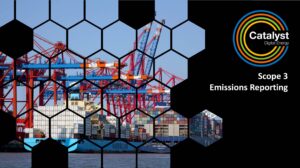Risks From Climate Changebriefing note titled Resilient Supply Chains, setting out evidence on climate-related risks to supply chains

Climate Change Risks
The Climate Change Committee highlights the risks from climate change and risks to energy supply chains and actions to increase resilience.
Recently the Climate Change Committee (CCC) published a briefing note titled Resilient Supply Chains, setting out evidence on climate-related risks to supply chains and actions for government and businesses to increase supply chain resilience.
In examining the current risks from climate change to UK supply chains from weather-related disruption, a specific focus on energy supply chains is set out, given that they are exposed to climate risks in many ways.
This includes risks to domestic energy generation and distribution, and international energy dependencies, from floods, low water availability, high temperatures, and other extreme weather in the UK and abroad.
Recent examples are provided, which demonstrate the impacts that extreme weather and climate can have on energy supply across the world.
This includes the strong winds experienced in the UK during Storm Arwen in November 2021, which impacted energy networks across a section of the east coast.
The loss of power combined with the loss of telecoms and water supply, as well as transport disruptions ‘significantly’ affected businesses’ ability to operate.
In addition, the report notes that imports of gas and oil in the UK and trade of electricity via interconnectors increase the country’s exposure to weather and climate risks outside of the UK, including flooding, low water availability, extreme heat and storms – all of which can impact the energy supply chain.
The report concludes that not only are risks to supply chains rising, but they are also increasingly complex, with the potential for cascading and interacting risks.
It also notes that some supply chains may be at a higher risk due to being geographically concentrated and that supply chain disruptions arise not only through direct trade links but also indirectly through energy flexibility and commodity markets and changes in the price of key inputs.
It highlights, however, that businesses can take a range of actions to adapt their supply chains to climate change, including collaborative planning and control with suppliers and infrastructure operators and diversifying the geographic location of suppliers.
It also notes that there is a need for clear frameworks from the government to support businesses in building climate resilient supply chains.
About Catalyst
Catalyst Digital Energy is an award-winning energy consultancy with a focus on digital energy services, total energy contract lifecycle management and energy management services. It is revolutionising how businesses manage energy with its unique Energy Spend Management Platform, which is powered by Robotic Process Automation (RPA) EaaSi®.
Catalyst is digitising all aspects of energy, including billing, data, consumption, spend, payments, procurement and emissions reporting. When combined with its fully funded renewable energy solutions, Catalyst offers a unique and powerful approach to managing energy.




